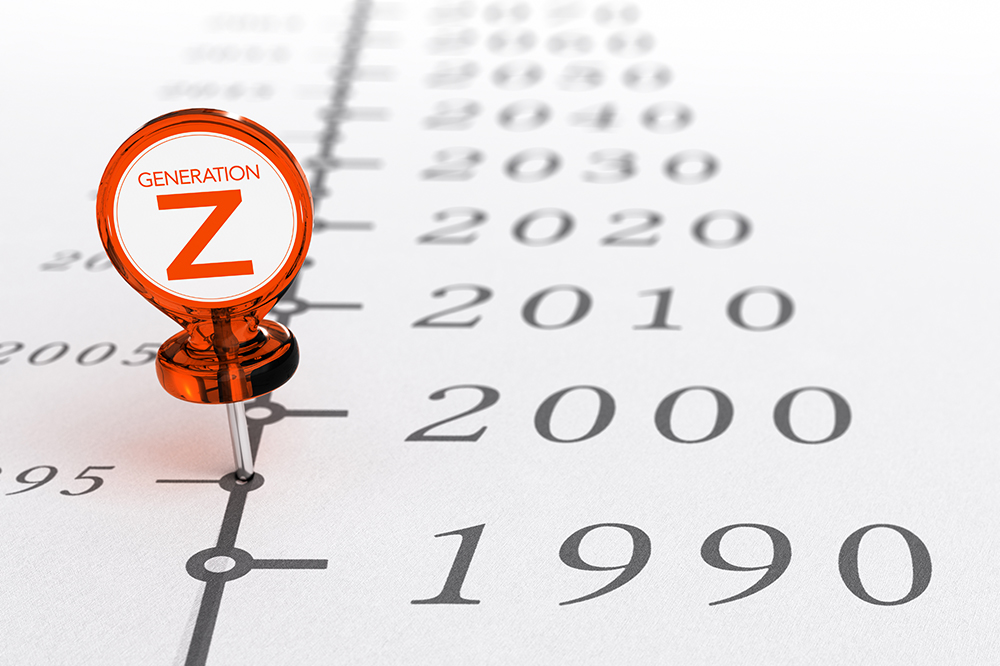Move over, Millennials! There’s a younger generation making its way into the workforce, and before you know it, people will be complaining about all the things Gen Z ruined, taking the heat off of Millennials once and for all.

With more and more Gen Zs entering the workforce, it’s time to switch gears and take a step back; these young workers are shaking up the workplace, and if you don’t know what they want out of an employer, good luck trying to hire them in the future.
Career website Zippia recently conducted a survey of 1,000 American jobseekers to uncover what Gen Zs are looking for in their next employer. What Zippia uncovered should come as no surprise: Employers and hiring managers have misconceptions about what young workers want.
What Benefits Matter Most
In the not-too-distant past, Ping-Pong tables and nap pods were trendy perks employers used to lure Millennial talent in the door. Now that the oldest Millennials are in their 40s, these types of perks just don’t cut it, but what about Gen Z?
Surprisingly, Gen Zs are more grown-up regarding what they want from an employer! According to Zippia, Gen Z’s three most desired benefits are health insurance (32%), remote work (25%), and 401(k)/retirement benefits (25%).
But don’t be fooled just yet! Like their Millennial counterparts, there are certain perks that are in high demand, like student loan assistance. Zippia’s survey found that Gen Zs are 7% more likely than Millennials to say “student loan assistance” is a most desired benefit.
Additionally, Gen Zs are far more socially conscious than Millennials. Zippia finds that 3% say charity contributions are one of their most desired benefits, while 18% go further, stating a company’s negative social impact is a deal breaker when it comes to accepting a job. Nearly one in three Gen Zs say they would turn down a job due to a company’s negative social impact, the Zippia survey found.
Deal Breakers
We know what Gen Zs want, but here’s what they don’t want from employers: an unpleasant office (47.5%), a long commute (42.1%), and an inflexible work environment (39.1%). Additionally, 36% say poor work/life balance is a deal-breaker when it comes to accepting a job, and as mentioned above, 29% say a company’s negative social impact is a turnoff, as well.
Despite Gen Zs saying they want health insurance, this isn’t a make-or-break for them, nor does the insurance have to be good. Only 16.2% of Gen Zs would turn down a job because of no or bad health insurance. And just like they say they want remote work, only 10.4% would reject a job offer if remote work wasn’t an option.
Office Space or Remote Work Environment?
While many (59%) Gen Zs say they’d prefer remote work, the current pandemic may be giving them a false impression of what the “real world” of work is all about. Remote work is new to many organizations, and despite the ability to adapt, some organizations say they’ll bring workers back into a normal environment once the pandemic passes.
However, if remote work isn’t an option, don’t throw up the cubicle walls just yet! Gen Zs prefer to work in an open-office environment, which may go hand in hand with the new social distancing guidelines you will have to implement because of the pandemic.
How Gen Z Differs
What’s been mentioned above seems to be on par with older generations. So how does Gen Z differ? According to Zippia, 93% of Gen Z workers spend their own time learning new skills to advance their career, which is more than any other generation.
Gen Z is also the generation most like to rely on friends, family, and social media when looking for a job, which means you better offer a flawless candidate experience! While we’re on that topic, 66% of Gen Zs would consider turning down a job offer after an unwelcoming interview, and this same 66% will most likely share their negative experience with their family, friends, and social media. So again, a positive candidate experience is a must!
We’ve covered the average tenure of young workers before, and most believe the average length of employment should be around 1 to 2 years. Yet, 31% of Gen Zs believe staying at a job for less than a year is fine compared with only 20% of Millennials, 14% of Gen X, and 20% of Baby Boomers.
Why such a short tenure for the youngest generation? According to Zippia’s findings, Gen Zs will leave a job sooner if there is a lack of advancement opportunities, and honestly, we can’t blame them! For a generation of self-starters who willingly seek out learning opportunities on their own, this age group wants to be challenged, and they want a guarantee that they’ll be able to climb the ladder at your organization.
And finally, Zippia finds that Gen Z is the “most stressed generation, due to long work hours that do not match their work/life balance expectations.” We aren’t entirely sure if this makes Gen Z unique, as most generations have been begging for work/life balance for decades, but if anything, it helps drive home the need for more flexibility. When looking to attract these young workers into your workplace, keep the above info in mind!
